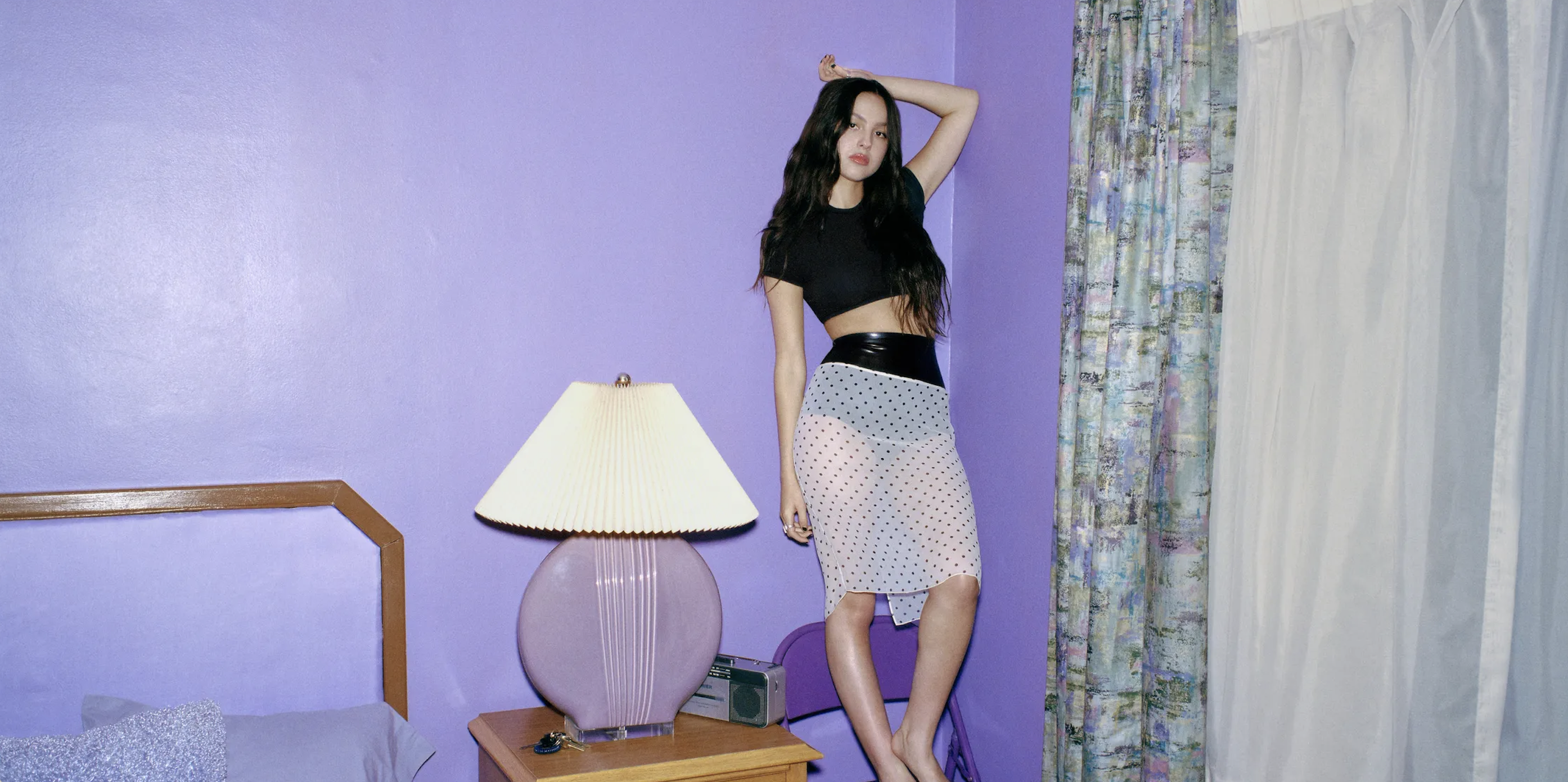On her second album, “Guts,” twenty-year-old songbird Olivia Rodrigo sings a love letter goodbye to her teenage years. Collaborating with old and new friends, Rodrigo’s mainstay musical support, pop-producer Dan Nigro, sonically encapsulates angry and heartbroken lyrics with heavy drums, electric guitars, and screams.
One relatable sentiment echoed throughout, “love is never logical,” comes from track seven. A piano ballad written partially by pop singer-songwriter Julia Michaels, the sentiment captures Rodrigo’s broken naïve perception of love: “Cause loving you is loving every / Argument you held over my head / Brought up the girls you could have instead / Said I was too young, I was too soft.”
The album was written at ages 18 and 19 with a precocious understanding of heartbreak. She explored heartbreak on her 2021 debut album, “Sour,” but closed each song feeling hopeful.
Whether it’s feeling embarrassed by who she lied to her friends about or feeling jealous towards someone she deems better than her, Rodrigo’s new perspective on love unlocked new levels of storytelling.
Songs like “pretty isn’t pretty” and “lacy” show the pop star struggles with the same intense jealousy her fans may feel. Track one, another pop-rock album opener from Rodrigo, sounds like it belongs in “Clueless,” and it introduces another theme in the album: the emotional conflict she felt when finding herself went against who society said she is.
On “lacy,” she describes a girl who is everything she wants to be and by the end whispers, “Lacy, oh Lacy, I just loathe you lately / And I despise my jealous eyes and how hard they fell for you.” The guitar loops while she compares herself to “Lacy,” providing consistency as Rodrigo rants about the ways “Lacy” is better than her. As in “Sour,” Rodrigo shines brightest on slower, more emotional pop ballads, but her storytelling remains spectacularly honest across the project.
Spilling her “Guts”

Rodrigo puts the worst parts of herself on display in “Guts” without the positive twist she tried to leave on “Sour.” The emotional ballads on her sophomore project realistically portray how she feels without searching for the bright side.
This concept may be more relatable to fans who feel life’s hardships withoutan upswing, though the album’s pop-rock moments tell some parts through rose-colored lenses. This balance shows Rodrigo’s personal and musical maturity since her last effort.
On “Guts,” she no longer needs to prove her vocal ability. With three Grammy wins and seven nominations from her debut album, she settles into her storytelling. “Ballad of a homeschooled girl” describes her social woes and flows beautifully into the next song, “making the bed,” lyrically and sonically.
Giving up hope, Rodrigo screams “Each time I step outside, it’s social suicide / It’s social suicide, wanna curl up and die” on “ballad of a homeschooled girl.” She expands on “making the bed”: “Every good thing has turned into somethin’ I dread / And I’m playin’ the victim so well in my head / But it’s me who’s been makin’ the bed.” Though the former is more upbeat, the latter song opens with lone guitar similarly played at the end of “ballad of a homeschooled girl,” indicating the story continues.
Making her mark
“Making the bed,” track six, seems to be Rodrigo’s first acknowledgment of how her seemingly overnight fame impacts her personal life.
Rodrigo debuted in an American Girl Doll movie, traveled through the Disney circuit, and finally charmed audiences with her voice on the Disney Plus original “High School Musical: The Musical: The Series.” Her first single, 2021’s “driver’s license,” opened the celebrity gateway, and she reached trapped-in-her-house–level fame.

In “making the bed,” she acknowledges how being a young girl in music puts a target on her back, but it’s the life that she worked for, so she accepts the challenge: “They tell me that they love me like I’m some tourist attraction / They’re changin’ my machinery, and I just let it happen / I got the things I wanted, it’s just not what I imagined.”
Rodrigo represents the next phase in pop music, cemented by her relevant influences and age. Yet, unlike other pop stars of her generation, Rodrigo made it this far by being exactly like other girls. This trope punishes teenage girls for liking “frivolous” things, but Rodrigo embraces her commonalities with her fanbase.
Since releasing her debut album, Rodrigo remains in the public eye, attending red carpets, and is known for building relationships with other pop stars her age. “Guts” takes a deep dive into a teenage girl’s mind, full of stories of nights out with friends, awkward social interaction, and heartbreak.
“Teenage dream,” the album’s closer, captures the mystery of how the rest of her life, personally and professionally, will unfold. The tricky piano ballad ends with heavy drums drowning out Rodrigo’s cries, “They all say that it gets better / It gets better, but what if I don’t?” and a voice memo of Rodrigo playing with Nigro’s newborn daughter, alluding to her lost innocence explored throughout the project. With powerhouse vocals and stellar storytelling at this age, her future is bright.








